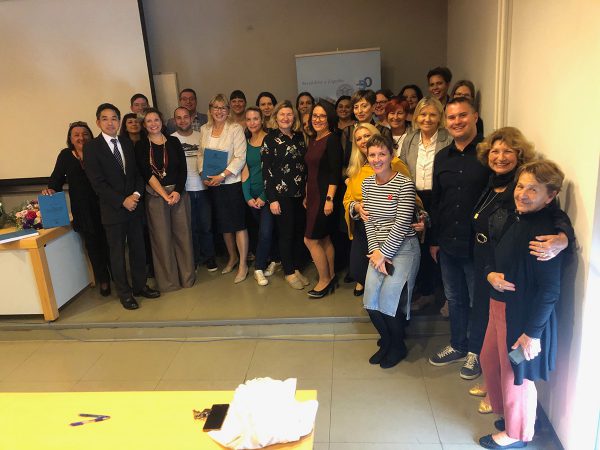Title: Measurement of Changes in the Surface
Free Energy of Enzyme Treated Textiles
Project type: Bilateral projects with United Kingdom
Croatian coordinator: Prof. Ana Marija Grancarić, PhD
UK coordinator: David Bishop
![]()
Project Summary:
One of the goals of European projects in the field of textiles is economically justified eco textiles, and maximum utilization of fiber. European textile design department at the University De Montfort University in Leicester investigated flax fibers, yarns and fabrics, the products of short and medium long flax fibers in blends with wool and polyester. Ecological processes in this project have already been applied in the process of obtaining linseed fibers of flax plants using enzyme retting of flax. After the addition of pectinase were used for boiling the intention of replacing the environmentally unfavorable NaOH. Methods of classical boiling linseed material in the bath with NaOH already been thoroughly worked out with the effects of high hydrophobicity. This is especially important because the chemical composition of flax fibers with a smaller share of pulp and other additives in the distribution compared to cotton. The research application of enzymes in the boiling of flax yarn and blends with polyester and wool, of paramount importance are the effects of hydrophobicity, in addition to the degree of whiteness, receiving color, strength and more. Share our work in this project is included in the study of the surface free energy, hydrophobicity and enzymatic boiled a mixture of flax yarn/wool and linen/polyester. Free surface energy was calculated by measuring penetration of two polar solvents, water and formamide and a unpolare solvent, n-heptane. Applied the modified method by using Chibowski Washborn’s equation for the speed of penetration of liquids in capillary systems of vital statistics as they considered the structure of textile materials.
![]()

